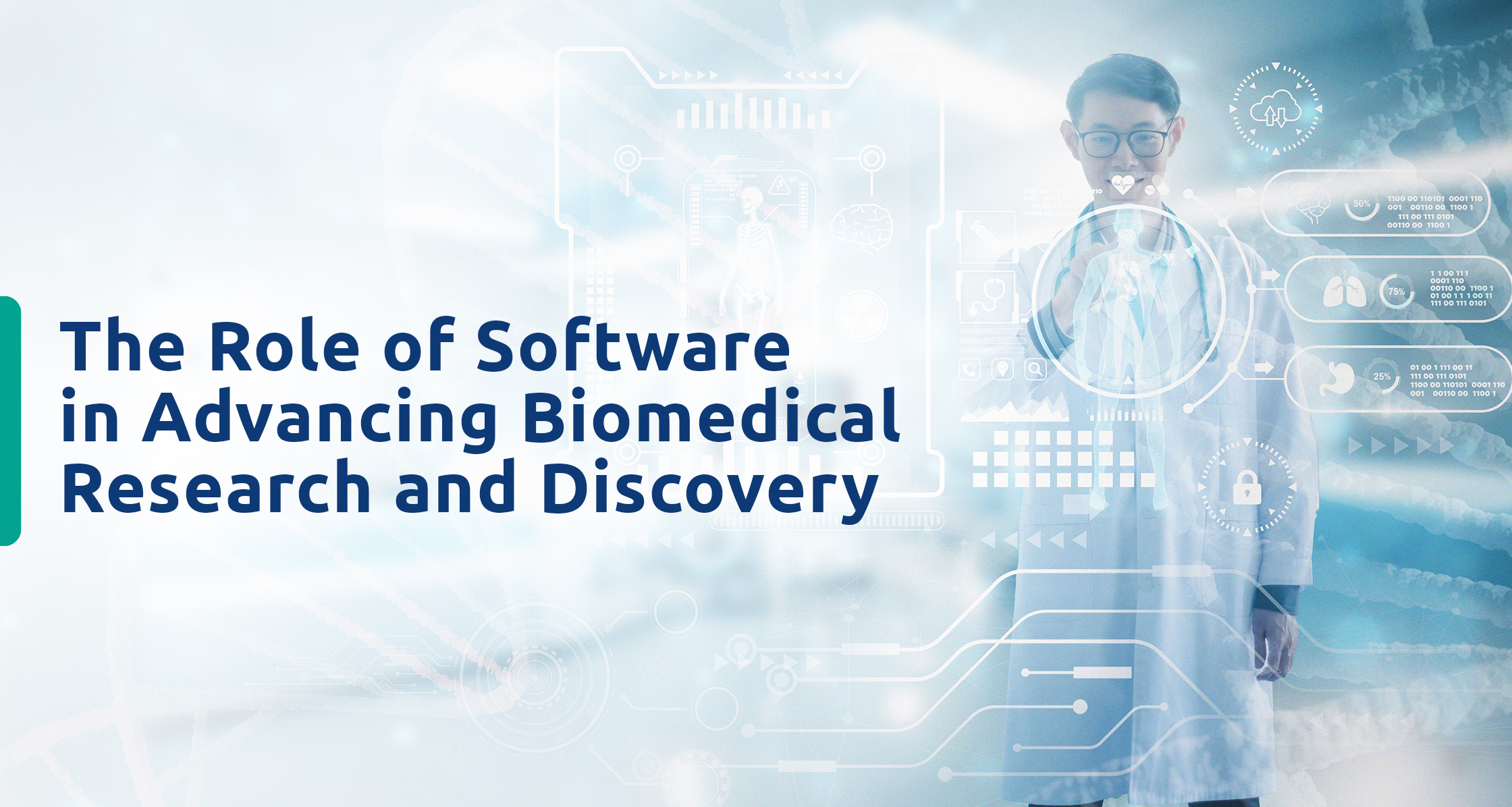Software is essential to improving scientific knowledge and spurring innovation in the quickly developing field of biomedical research. Biomedical software engineering is now crucial for deriving valuable insights from complicated datasets as a result of the introduction of cutting-edge technology and the growing accessibility of large volumes of data. This blog post examines the important roles that software plays in advancing scientific research and enabling ground-breaking discoveries.
The Power of Data
Data lies at the heart of biomedical research, and its proper analysis is crucial for unraveling the mysteries of human health and disease. However, the sheer volume and complexity of data generated in biomedical research present significant challenges. This is where biomedical software engineering comes into play. By developing sophisticated algorithms and data analysis tools, software engineers enable researchers to efficiently analyze and interpret vast datasets, thereby uncovering hidden patterns and trends.
The Role of Machine Learning
Machine learning algorithms have revolutionized biomedical research by enabling the analysis of large-scale datasets in a fraction of the time it would take humans. Software engineers develop and implement these algorithms to extract valuable insights from a variety of sources, such as genomics, proteomics, and clinical data. Furthermore, machine learning models aid in predicting disease outcomes, identifying potential drug targets, and even personalizing treatment plans. By leveraging the power of machine learning, biomedical software engineering has accelerated the pace of discovery and opened up new avenues for personalized medicine.
Improvements in Wearable Technology
Wearable devices have emerged as powerful tools in biomedical research, enabling continuous monitoring of various physiological parameters. These devices, equipped with sensors, collect data on heart rate, sleep patterns, physical activity, and more. Software engineers play a critical role in developing algorithms and applications to analyze and interpret the data gathered from wearable devices. By integrating wearable device data with other clinical and genomic data, researchers can gain valuable insights into disease progression, treatment efficacy, and overall health trends. Wearable devices have the potential to revolutionize personalized medicine by providing real-time, personalized health monitoring and interventions.
Visualization and Data Integration
In the realm of biomedical research, visualization is key to understanding complex biological systems and effectively communicating research findings. Software engineers develop advanced visualization tools that enable researchers to represent complex data in intuitive and interactive ways. From three-dimensional models of proteins to dynamic visualizations of cellular processes, these tools empower researchers to explore and analyze data more effectively. Additionally, software plays a crucial role in integrating data from multiple sources, such as electronic health records, imaging data, and molecular data. By combining and analyzing diverse datasets, researchers gain a more comprehensive understanding of complex diseases and can identify novel therapeutic targets.
Improving Clinical Decision Support
Biomedical software engineering also plays a vital role in improving clinical decision support systems. By developing software solutions that integrate patient data, clinical guidelines, and evidence-based medicine, software engineers enable healthcare professionals to make more informed decisions about patient care. These decision support systems can help diagnose diseases, predict treatment outcomes, and recommend personalized treatment plans. By leveraging software to analyze vast amounts of patient data and generate real-time insights, clinicians can provide more accurate diagnoses and improve patient outcomes.
The role of software in advancing biomedical research and discovery cannot be overstated. From analyzing large-scale datasets to streamlining laboratory workflows, software engineers are at the forefront of driving innovation in the field of biomedicine. By leveraging advanced algorithms, machine learning, and data visualization tools, they enable researchers to extract meaningful insights from complex biological data. Furthermore, the integration of software solutions in clinical decision support systems empowers healthcare professionals to provide personalized and evidence-based care to patients.
As technology continues to advance, the future of biomedical research holds great promise. With the continued collaboration between software engineers and biomedical researchers, we can expect even more groundbreaking discoveries, improved healthcare outcomes, and advancements in personalized medicine.
To fully harness the potential of these technologies, it is imperative for biomedical companies to embrace them and make investments in robust software engineering solutions. Are you in need of an A+ team of software engineering experts? Look no further and get in touch with us.
About ITJ
ITJ is devoted to serving fast-growing and high-value market sectors, particularly the Internet of Medical Things (IoMT), working with innovative medical device companies looking to improve people’s lives. With a unique BOT (build, operate, and transfer) model that sources only the best digital talent available, ITJ enables companies in the US to create technology centers of excellence in Mexico. For more information, visit www.itj.com.
